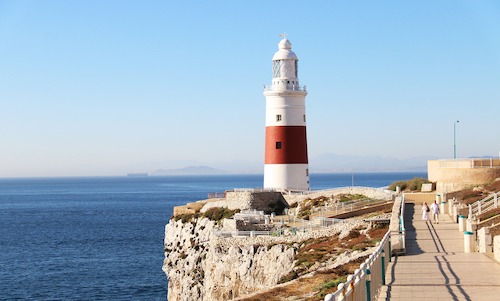The British overseas territory of Gibraltar’s relationship with the UK, its lifestyle and the fact that it is English-speaking means that it is an attractive proposition for expats, particularly if they are British. If you are a native English speaker, you will have few issues with communication here.You will not need to be bilingual in Spanish if you want to work here, although speaking Spanish may be helpful if you are living over the border in Spain (where property is somewhat cheaper), and if you plan to live in Gibraltar and work in Spain, speaking the language might well be essential. Therefore, we will look below at some of your options with regard to learning Spanish, but also in relation to learning English if you are not a native English speaker in Gibraltar.
English is the official language in the territory, but other languages are spoken here besides Spanish: the Rock is a nexus point between Europe and North Africa, and you will find Mahgrebi Arabic spoken here as well, since Gibraltar has a small Moroccan population. Genoese, Maltese and Hebrew are spoken, too, plus other languages such as Hindi.
Local Gibraltarans speak Llanito, which is a vernacular language based on Andalusian Spanish and British English, with many loan words from other Mediterranean languages such as Portuguese, Maltese and Genoese Italian. Spanish was spoken in the country up until the 1700s, when the British took over.
If you are moving to Gibraltar, particularly if you are a cross-border worker, you will find provision for language training in Spanish, and if you are not a native speaker, you will also find plenty of opportunities to learn English.

There are a number of language schools which teach Spanish, at all levels. You may wish to take the DELE: Diplomas de Español como Lengua Extranjera (Diplomas of Spanish as a Foreign Language). This is the official diploma issued by the Spanish Instituto Cervantes, on behalf of the Spanish Ministry of Education and Science, to students who have passed a standardised test in European Spanish. This is the benchmark of Spanish learning and if you are intending to work for a Spanish speaking company, you may like to consider this exam as a possibility.
If you intend as a non-native speaker to come to Gibraltar to learn English, you will also find plenty of provision: the Rock has a number of language schools and because Gibraltar is English-speaking, you will find a suitably immersive environment. The University of Gibraltar offers intensive English courses of between 20 -24 hours of tuition a week, for 2 or 4 weeks, and can enrol you for the Cambridge exam, if you intend on taking your English training to a higher level. Courses are run all year round.
There are also private schools catering to different levels, from students who want to learn some of the basics but also take the opportunity to see some of the sights of the territory, to more serious learners who want to improve their business English.
Whether you are planning to learn English or Spanish, it is advisable in either language to master some basic phrases:
• meet and greet
• numbers
• directions
• days of the week/months of the year
• shopping and food-related vocabulary, including eating out
• some basic medical vocabulary (e.g. asking for a doctor’s appointment)
• some basic banking vocabulary (e.g. opening a bank account)
If you are planning to come to Gibraltar to teach English (TEFL) then you need to be aware that despite the language training mentioned above, there is not a high degree of local demand, since most Gibraltarans are bilingual. The territory is small, so although there is plenty of language training for students, there are not a large number of jobs available, unless you intend to teach privately on a self employed basis (this is probably most viable for a spouse with a TEFL certificate who is accompanying a full time employer partner and who wants a few hours of work on the side).
Expat teachers report that there are jobs available along the coast, for example in Marbella, but bear in mind that the commute can be lengthy (due to queues) and it may be more realistic to seek work in Spain itself, and live there.
Would you like to share your experience of life abroad with other readers? Answer the questions here to be featured in an interview!

